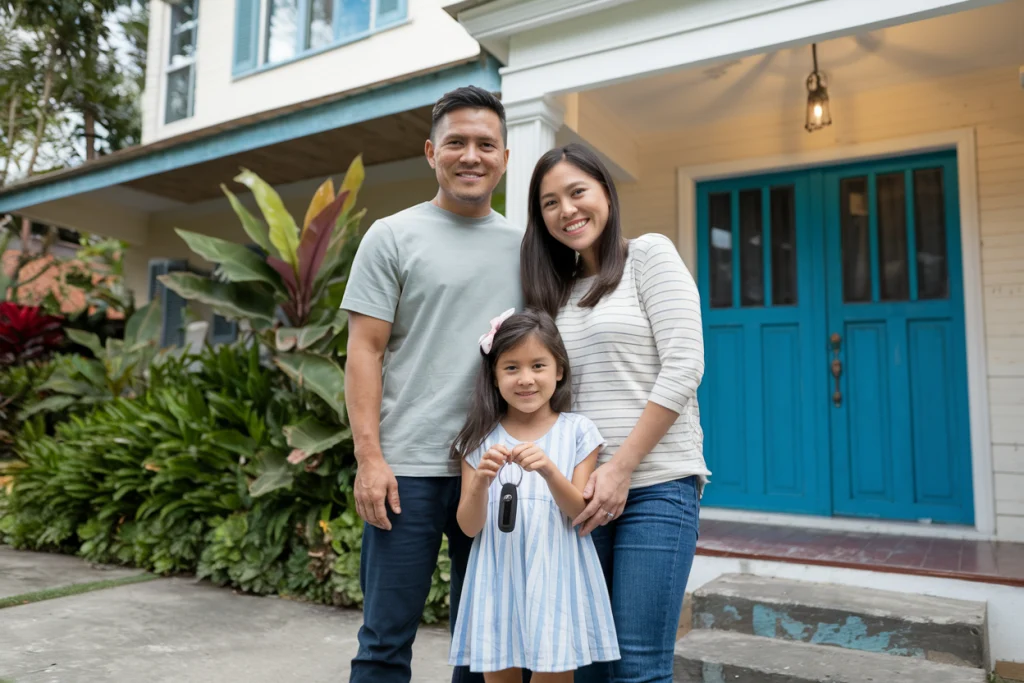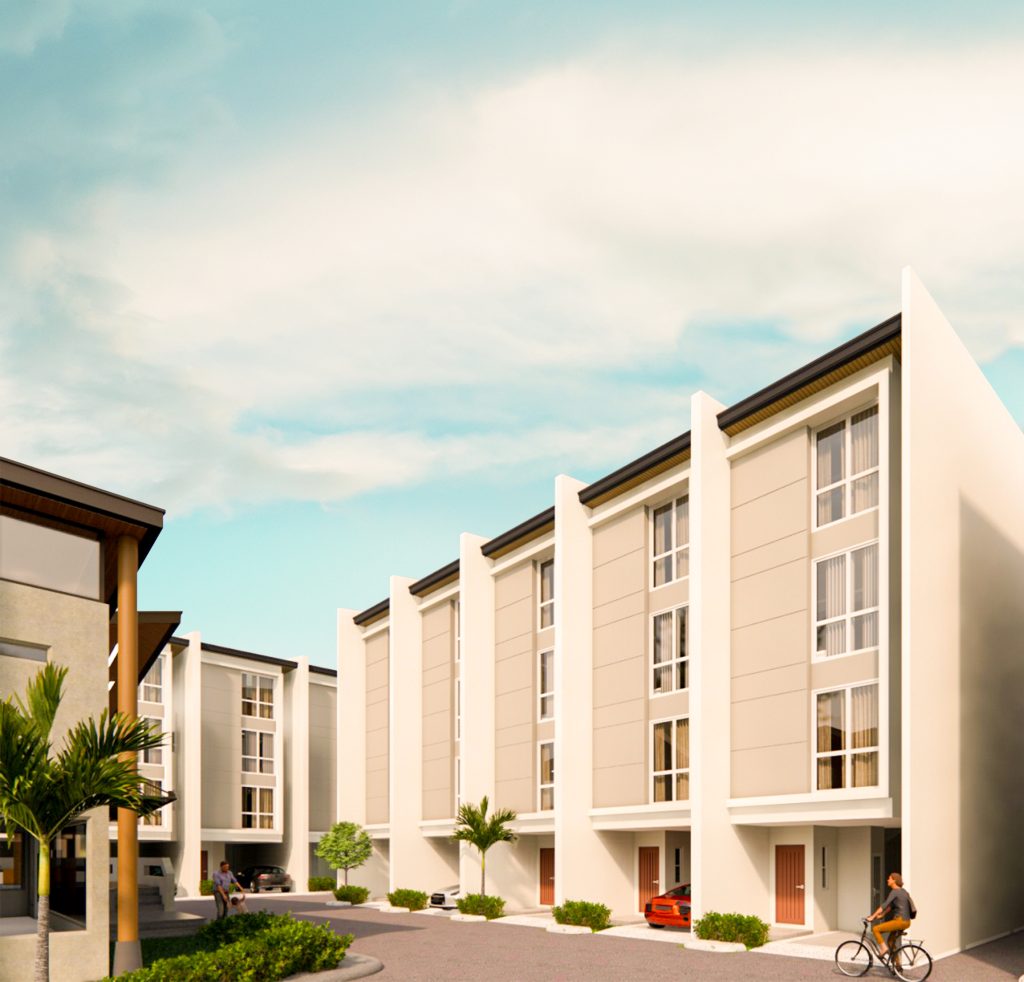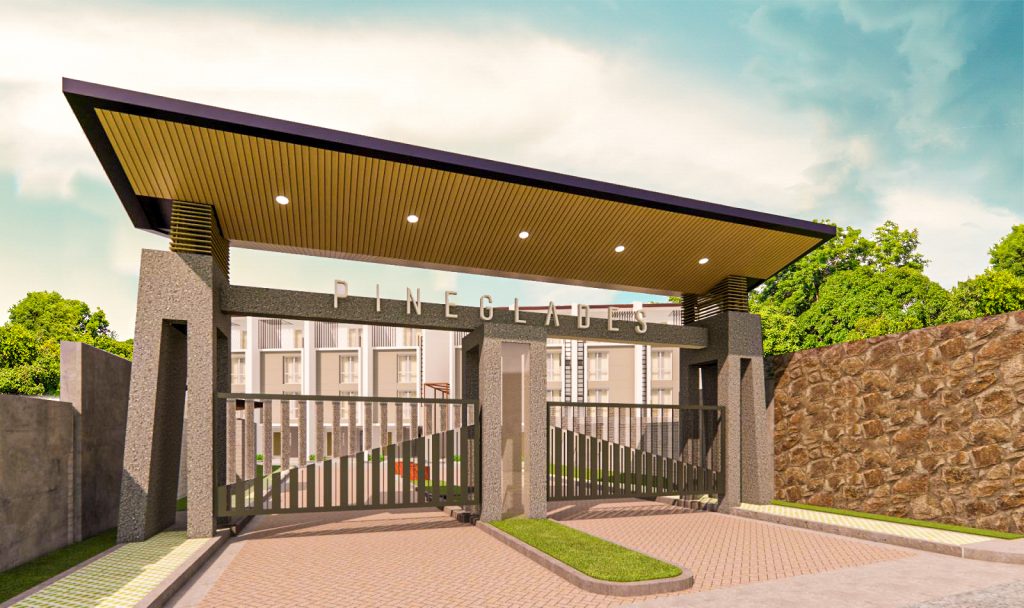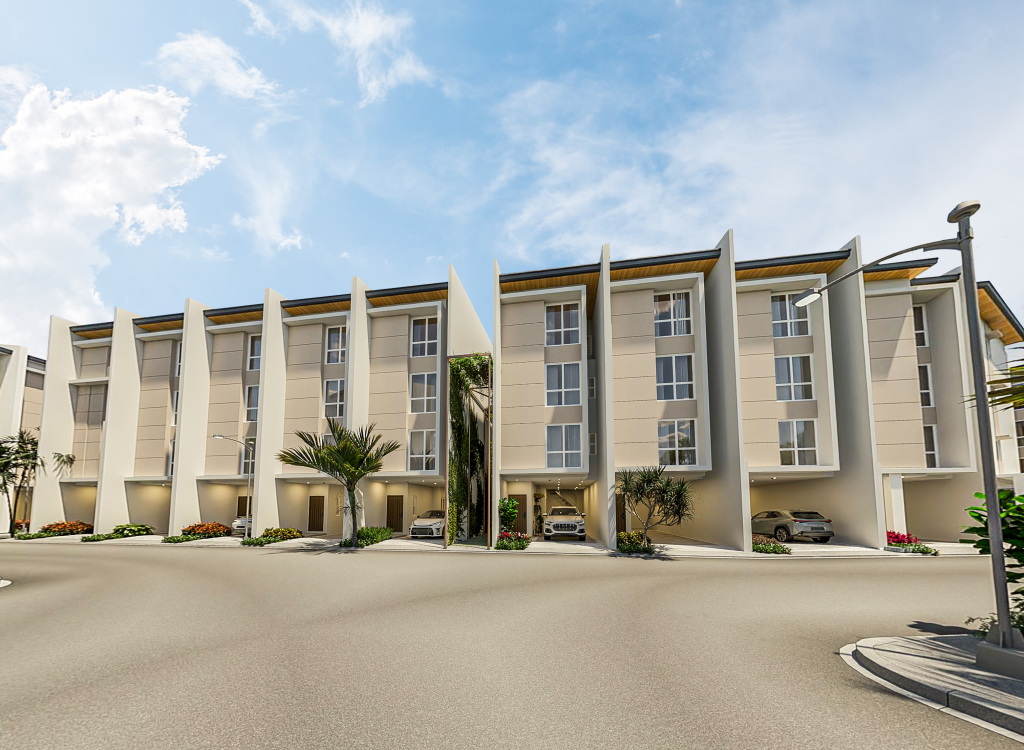“Ma, kailan kaya tayo magkakaroon ng sariling bahay?”
It’s a question that tugs at the heart.
Maybe you’ve heard it from your own child, or perhaps it’s a dream you’ve carried since you were young—watching your parents count every peso, hoping that one day, your family would have a place to truly call home.
For many Filipino families, owning a house isn’t just about having a roof over their heads. It represents security, pride, and a promise of a better future.
It means no longer worrying if the rent will go up next year, or if the landlord will suddenly ask you to move.
Every peso invested in a home builds something lasting, something you can call your own.
But let’s be real…
Buying a home is a huge commitment, and not everyone is financially ready for it.
The down payment alone can take years to save, and monthly amortizations are no joke.
On the flip side, renting may seem like the easier choice, but it can also feel like throwing money away on something you’ll never truly own.
So, what’s the smarter choice?
Is it time to buy, or is renting the wiser move for now?
If you’re torn between these two options, you’re not alone.
Many Filipino families struggle with this decision, and there’s no one-size-fits-all answer.
But with the right financial planning, you can make a choice that aligns with your goals, your family’s needs, and your future stability.
In this guide, written in collaboration with Metrostar Realty & Development Inc., a trusted real estate developer in the Philippines, we’ll break down the financial realities of renting vs. buying, so you can make the best decision for your family’s future.
Because at the end of the day, it’s not just about where you live. It’s about building a life where your family can truly thrive.
1. Understanding Your Family’s Financial Readiness

Buying a home is one of the biggest financial decisions your family will ever make. It’s exciting but also a huge responsibility.
Before taking the plunge, take a step back and assess whether your finances are truly ready for homeownership.
Key Factors to Consider:
✅ Income vs. Expenses: Can You Comfortably Afford Homeownership?
Your monthly income should cover not just your house amortization but also your family’s daily expenses, utilities, and other financial obligations.
If paying for a home would mean sacrificing essentials like food, education, or healthcare, it may not be the right time yet.
Rule of Thumb: Your monthly housing expenses (including mortgage, property taxes, and insurance) should not exceed 30% of your income.
✅ Savings for a Down Payment: Do You Have Enough?
Most banks and developers require at least 10-20% down payment for a house and lot.
This means if you’re eyeing a ₱3M home, you need to have at least ₱300K-₱600K saved upfront.
Aside from the down payment, factor in:
✔️ Closing costs (processing fees, transfer taxes, etc.)
✔️ Moving expenses
✔️ Initial home setup costs (appliances, furniture, minor renovations)
Good News: Metrostar Realty offers flexible payment terms and financing options, making homeownership more accessible.
✅ Debt-to-Income Ratio: Can You Handle a Mortgage?
If you’re still paying off high-interest debts like credit cards or personal loans, adding a mortgage might put too much strain on your budget.
Financial Tip: Try to clear or minimize your high-interest debts first. A good target is to keep your total debt payments (including a future home loan) below 40% of your income.
✅ Emergency Fund: Are You Prepared for Unexpected Expenses?
Owning a home comes with additional costs—repairs, maintenance, association dues (if applicable), and unexpected emergencies.
Make sure you have an emergency fund with at least 3-6 months’ worth of living expenses before committing to homeownership.
This ensures that if anything unexpected happens—job loss, medical emergencies—you won’t struggle with mortgage payments.
Should You Buy Now or Wait?
If you’ve checked all the boxes above and feel financially stable, homeownership could be the right next step for your family.
But if not, it’s okay to keep renting for now while working toward your financial goals.
The key is planning wisely so that when you finally decide to buy, it’s not just an emotional decision, but a smart financial move that secures your family’s future.
2. Renting vs. Buying: Pros and Cons

Both renting and buying have their advantages and drawbacks. Weigh these carefully to determine what’s best for your family.
Renting: Pros and Cons
✅ Lower upfront costs.
Renting requires a security deposit and advance payments, but it doesn’t demand a large down payment like buying a home does. This makes it ideal for those still building their savings.
✅ Flexibility to relocate.
If your job requires frequent moves or you’re unsure where you want to settle long-term, renting allows you to move easily without the burden of selling a property.
✅ No maintenance expenses.
Repairs, property taxes, and maintenance costs are typically covered by the landlord, saving you from unexpected expenses.
❌ Rent payments do not build equity.
Unlike homeownership, renting means you’re paying for a space you’ll never own. Over time, this can feel like money going to waste.
❌ Limited control over the property.
Renters must follow the landlord’s rules, which may include restrictions on renovations, pets, and even the number of occupants.
❌ Rent increases over time.
Unlike a fixed-rate mortgage, rent prices can rise, making it harder to plan long-term housing expenses.
Buying: Pros and Cons
✅ Builds equity and financial security.
Monthly mortgage payments contribute to homeownership, increasing your net worth over time. Unlike rent, this investment eventually becomes yours.
✅ Stability for your family.
Owning a home means no sudden evictions or rent hikes. You have a permanent place to call home, offering security and consistency, especially for families with children.
✅ Freedom to personalize.
Homeowners can renovate, decorate, and modify their space without needing a landlord’s approval.
❌ Higher upfront costs.
Buying a home requires a down payment, closing fees, and other expenses. This can be a challenge if you don’t have substantial savings.
❌ Long-term financial commitment.
A mortgage typically lasts 15 to 30 years. You must be financially prepared for consistent payments.
❌ Ongoing maintenance and taxes.
Homeowners are responsible for all repairs, renovations, property taxes, and association dues if applicable. These additional costs can add up over time.
3. When Does Renting Make More Sense?

While owning a home is a dream for many families, it’s not always the right choice—at least not yet.
Renting can be the smarter and more practical option in certain situations.
Here are a few scenarios where renting makes more sense:
You’re Still Building Financial Security
If you don’t have enough savings for a down payment, closing costs, and an emergency fund, renting can give you time to strengthen your finances.
Rushing into homeownership without a solid financial foundation can lead to stress, missed mortgage payments, or even foreclosure.
You Need Flexibility
Does your job require frequent relocations? Are you still unsure where you want to settle long-term? Renting allows you to move freely without the challenges of selling a property.
This is ideal if you anticipate career changes, business opportunities, or family obligations that may require relocation.
Renting Is More Affordable in Your Area
In some locations, renting is significantly cheaper than buying. If property prices are too high, it might be wiser to rent while you save and wait for a better buying opportunity.
This way, you can still live in a good neighborhood without the heavy financial burden of a mortgage.
You’re Not Ready for Homeownership Responsibilities
Owning a home isn’t just about making monthly mortgage payments. It comes with maintenance costs, repairs, and property taxes.
If you prefer to avoid these responsibilities for now, renting may be the better option until you’re fully prepared for the long-term commitment of homeownership.
4. When Does Buying Make More Sense?

Owning a home is more than just having a place to live. It’s a long-term investment in your family’s future.
While buying a home requires a bigger financial commitment upfront, it can offer stability, security, and wealth-building opportunities.
Here’s when purchasing a home might be the smarter choice:
You Have a Stable Income and Enough Savings
If you have a steady job or business income and enough savings to cover a down payment, closing costs, and emergency fund, buying a home can be a wise financial move.
A mortgage can often be comparable to, or even lower than, monthly rent payments, except that instead of paying a landlord, you’re investing in your own property.
You Plan to Settle Down for the Long Term
If you see yourself staying in the same area for at least 5 to 10 years, buying makes more sense than renting.
Owning a home gives your family a sense of stability and security, especially if you have children who will benefit from growing up in a familiar environment.
The Cost of Owning Is Comparable to or Cheaper Than Renting
In some areas, the monthly cost of a mortgage, taxes, and maintenance is close to or even lower than rent.
Instead of paying for something temporary, your payments go toward building home equity, which increases your net worth over time.
You Want to Build Long-Term Wealth
Real estate is one of the most reliable investments for wealth-building.
Instead of rent payments that don’t benefit you in the long run, homeownership allows you to build equity, enjoy property appreciation, and secure an asset that can be passed down to your children.
Tip: Metrostar Realty develops well-planned residential communities in key locations, ensuring long-term value, accessibility, and a great environment for growing families.

Final Thoughts
“Hanggang kailan tayo magpapalipat-lipat ng inuupahan bago natin matawag ang isang bahay na atin talaga?”
For many, a home is more than just a structure—it’s a foundation for dreams, security, and a future built on stability.
It’s about creating a space where your children can grow up without the fear of moving again, where every improvement you make is for your home, not a landlord’s property.
But timing is key. Renting can provide the breathing room you need today, while homeownership requires careful planning and long-term commitment.
What matters is making a decision that fits your present situation while working toward the future you envision.
Whenever you’re ready to take that next step, Metrostar Realty is here to help.
Find a home where your family can settle, grow, and build the future you deserve.
Explore their communities today and take that first step toward a place you can finally call your own.


